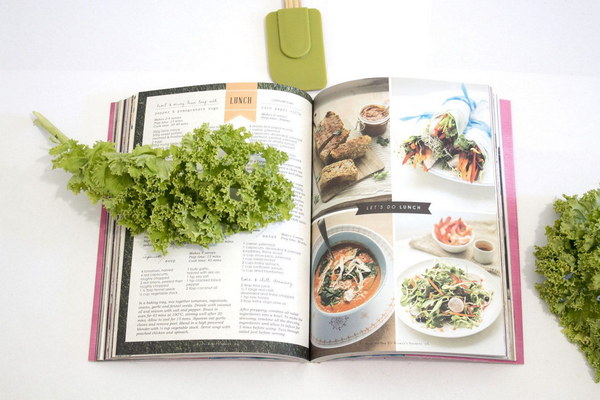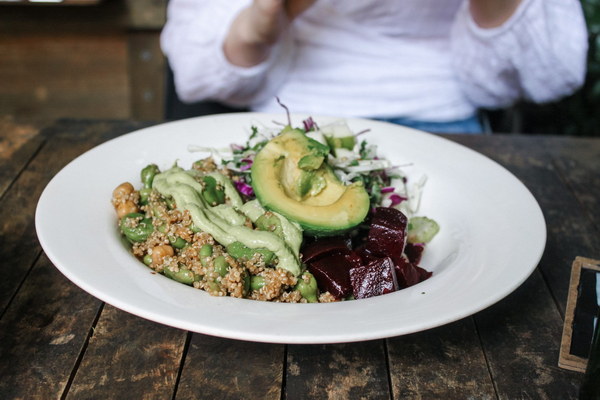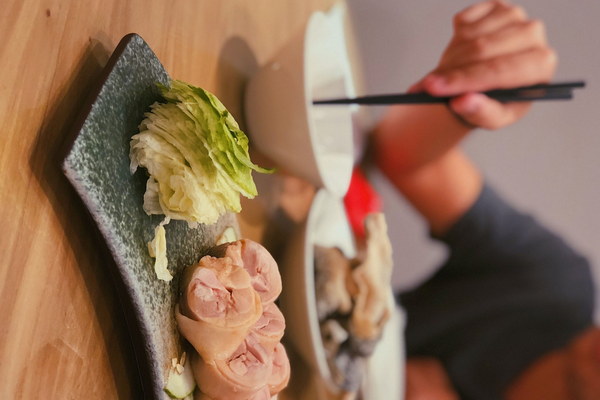Nourishing Paws A Holistic Approach to Doggy Cuisine with Traditional Chinese Herbs
In recent years, the pet care industry has witnessed a surge in demand for holistic and natural remedies for our beloved pets. One such trend is the incorporation of traditional Chinese herbs into the diet of dogs, aiming to improve their overall health and well-being. This article delves into the world of doggy cuisine, exploring the benefits of incorporating Chinese herbs into your furry friend's diet and offering a comprehensive guide to creating a nourishing and balanced meal plan.
The Basics of Doggy Cuisine
A dog's diet should be tailored to meet its specific nutritional needs, taking into account age, breed, and activity level. A balanced diet includes a variety of fresh ingredients, such as lean proteins, whole grains, and vegetables. However, traditional Chinese medicine (TCM) takes this a step further by introducing herbs that have been used for centuries to treat various ailments and enhance overall health.
Benefits of Traditional Chinese Herbs
The use of Chinese herbs in doggy cuisine offers numerous benefits, including:
1. Enhanced Immune System: Herbs like Astragalus and Ginseng are known to boost the immune system, helping your dog fight off infections and diseases more effectively.
2. Improved Digestion: Herbs such as Ginger and Licorice can help alleviate digestive issues, such as bloating and diarrhea.
3. Joint Health: Herbs like Turmeric and Boswellia have anti-inflammatory properties that can help alleviate joint pain and improve mobility in older dogs.
4. Skin and Coat Health: Herbs like Chrysanthemum and Scutellaria can promote a healthy skin and coat, reducing the occurrence of skin allergies and hair loss.
5. Stress Reduction: Herbs such as Lavender and Valerian Root can help alleviate stress and anxiety in dogs, making them more relaxed and content.
Incorporating Chinese Herbs into Your Dog's Diet
When adding Chinese herbs to your dog's diet, it's essential to do so with caution. Here are some tips for incorporating these natural remedies:
1. Research and Consult: Before introducing any new herbs to your dog's diet, do thorough research and consult with a veterinarian or a certified herbalist to ensure the herb is safe and appropriate for your pet's specific needs.
2. Start Slowly: Begin by adding a small amount of the herb to your dog's food, gradually increasing the dosage as needed.

3. Balance is Key: While Chinese herbs offer numerous benefits, it's essential to maintain a balanced diet that includes a variety of fresh ingredients.
4. Quality Matters: Choose high-quality, organic herbs to ensure the best possible results for your furry friend.
Recipes for Nourishing Paws
To help you get started, here are a few recipes that incorporate traditional Chinese herbs into your dog's diet:
1. Ginger and Turmeric Broth: Combine fresh ginger and turmeric with chicken or beef broth, and simmer for 20 minutes. Strain and serve as a supplement to your dog's regular meal.
2. Astragalus and Ginseng Soup: Combine Astragalus and Ginseng with chicken or beef broth, carrots, and sweet potatoes. Simmer for 30 minutes, then strain and serve.
3. Scutellaria and Chrysanthemum Salad: Mix Scutellaria and Chrysanthemum with cooked quinoa, steamed spinach, and a touch of soy sauce. Serve as a side dish or snack.
By incorporating traditional Chinese herbs into your dog's diet, you can help enhance its overall health and well-being. Remember to consult with a professional before making any significant changes to your pet's diet and to maintain a balanced approach to ensure the best possible outcome for your furry friend. Happy cooking and nourishing paws!









